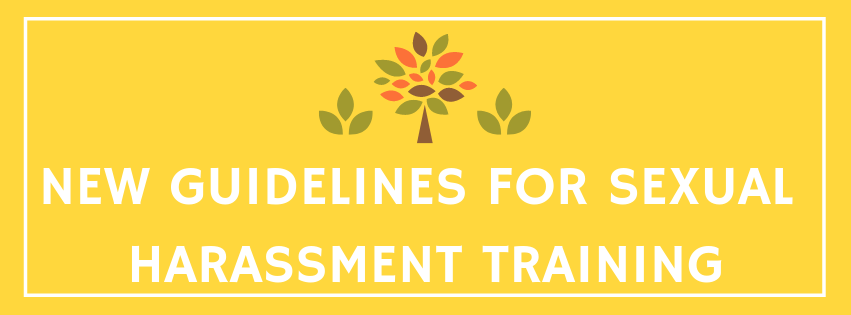California has had a law requiring sexual harassment training for businesses with more than 50 employees, but that was changed effective January 1, 2019 (SB 1343) to be for employers with 5 or more workers.
The required training involves 1 hour for non-managerial and 2 hours for managerial employees once every two years. The deadline for the first training session is January 1, 2020. All employees must be retrained by January 1, 2022. According to Senate Bill 292 passed in 2013, the definition of sexual harassment was amended to include “Sexually harassing conduct need not be motivated by sexual desire.”
Assembly Bill 2053 mandates anti-bullying training and is often done at the same time as sexual harassment training. This law went into effect January 1, 2015. According to the bill, “abusive conduct” means the conduct of an employer or employee in the workplace, with malice, that a reasonable person would find hostile, offensive, and unrelated to an employer’s legitimate business interests. Abusive conduct may include repeated infliction of verbal abuse, such as the use of derogatory remarks, insults, and epithets, verbal or physical conduct that a reasonable person would find threatening, intimidating, or humiliating, or the gratuitous sabotage or undermining of a person’s work performance. A single act shall not constitute abusive conduct, unless especially severe and egregious.
Senate Bill 396 took effect January 1, 2018, which includes the requirement that there must also be training to include harassment based on gender identity, gender expression, and sexual orientation. The training must be a minimum of two hours long, must be taken by all supervisory employees within six months of their hire date, and must be repeated every two years.
So what does this mean for you? Although the laws listed above had been required only for employers with 50 or more employees, with SB 1343 taking effect, you must plan to offer sexual harassment training if you employ 5 or more (and they do not all have to be CA employees). There are resources you can find to teach the course (HR company, seminar, or online course). My website does share courses available and you can find the module for supervisors at http://bit.ly/2DCI0GT and employee training at http://bit.ly/2DE8lEB. You might also want to check if courses are included in your policy if you have Employment Practices Liability insurance.
To read the text of each of the bills, you can find details at SB 1343, AB 2053, and SB 396.
